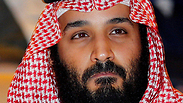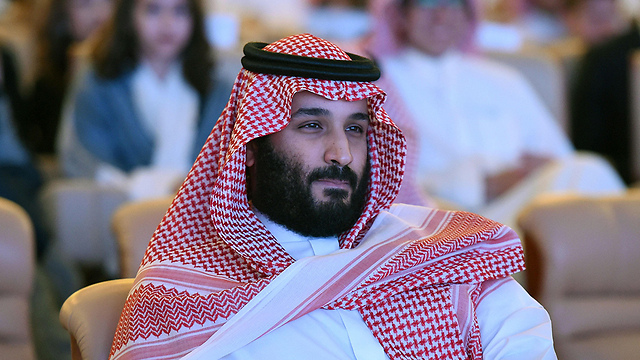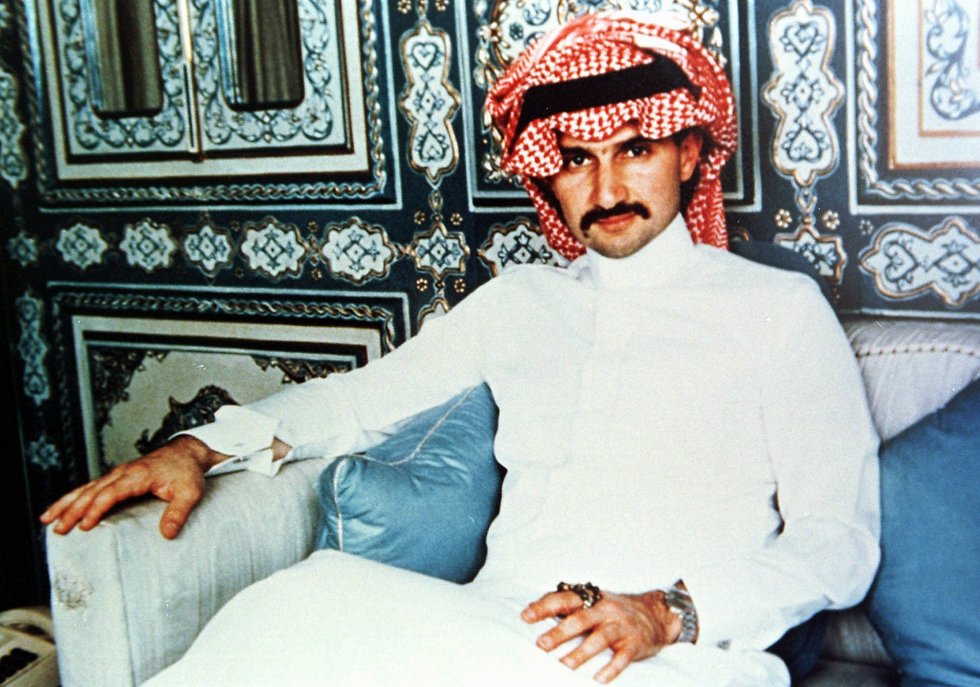

Saudis arrest 11 princes, dozens of ex-ministers in shake-up
In a power move, Crown Prince Mohammed bin Salman, who heads anti-corruption committee, orders arrests of some of the country's most powerful businessmen, including contender to the throne Prince Miteb bin Abdullah and billionaire Prince Alwaleed bin Talal.
RIYADH - Saudi Arabia has reportedly arrested 11 princes, 38 former government ministers, deputies and businessmen as it announces a new anti-corruption campaign, further cementing King Salman and his crown prince son's control of the kingdom.
The Saudi-owned Al-Arabiya satellite news channel reported that the anti-graft committee is looking into deadly floods that overwhelmed parts of the city of Jiddah in 2009 and the government's response to the Middle East Respiratory Syndrome (MERS) virus that has killed several hundred people in the past few years.
The anti-corruption effort is being headed by the kingdom's powerful Crown Prince Mohammed bin Salman, who was named to oversee the new committee.
Al-Arabiya did not name those detained, though reports indicate they included some of the most powerful businessmen in the country.
A senior Saudi official told Reuters the detainees include billionaire Prince Alwaleed bin Talal, who owns investment firm Kingdom Holding; Prince Miteb bin Abdullah, minister of the National Guard; Prince Turki bin Abdullah, former governor of Riyadh province; Khalid al-Tuwaijri, former chief of the Royal Court; Adel Fakeih, Minister of Economy and Planning; Ibrahim al-Assaf, former finance minister; Abdullah al-Sultan, commander of the Saudi navy; Bakr bin Laden, chairman of Saudi Binladin Group; Mohammad al-Tobaishi, former head of protocol at the Royal Court; Amr al-Dabbagh, former governor of Saudi Arabian General Investment Authority; Alwaleed al-Ibrahim, owner of television network MBC; Khalid al-Mulheim, former director-general at Saudi Arabian Airlines; Saoud al-Daweesh , former chief executive of Saudi Telecom; Prince Turki bin Nasser, former head of the Presidency of Meteorology and Environment; Prince Fahad bin Abdullah bin Mohammad al-Saud, former deputy defense minister; Saleh Kamel, businessman; Mohammad al-Amoudi, businessman.
Reports also suggested those detained were being held in the Ritz Carlton in Riyadh, which only days earlier hosted a major investment conference. The phone number for the hotel had been disconnected by Sunday morning and a Dubai-based spokeswoman for the hotel chain did not respond to a request for comment.
Meanwhile, the kingdom's top council of clerics issued a statement saying it is an Islamic duty to fight corruption—essentially giving religious backing to the high-level arrests being reported.
The government said the anti-corruption committee has the right to issue arrest warrants, impose travel restrictions and freeze bank accounts. It can also trace funds, prevent the transfer of funds or the liquidation of assets, and take other precautionary measures until cases are referred to the judiciary.
The royal order said the committee was established "due to the propensity of some people for abuse, putting their personal interest above public interest, and stealing public funds."
Saudi nationals have long complained of rampant corruption in government and of public funds being squandered or misused by people in power.
The 32-year-old crown prince has been seeking to attract greater international investments and improve the country's reputation as a place to do business. It's part of a larger effort to diversify the economy away from dependence on oil revenue.
"The scale of the arrests goes beyond the allegations of corruption, and are designed to further smooth the eventual succession," said Kristian Coates Ulrichsen, a research fellow at the James A. Baker III Institute for Public Policy at Rice University.
"As a leader who is set to remain in power for decades, Mohammed bin Salman is remaking the kingdom in his own image and signaling a potentially significant move away from the consensual balancing of competing interests that characterized Saudi rule in the past."
The king also ousted one of the country's highest-level royals from power, removing Prince Miteb bin Abdullah as head of the National Guard. He was replaced by Prince Khalid bin Ayyaf al-Muqrin, who had held a senior post with the guard.
Prince Miteb's father was the late King Abdullah, who also had led the National Guard and had transformed it into a powerful and prestigious force tasked with protecting the ruling Al Saud family, as well as important holy sites in Mecca and Medina, and oil and gas sites.
Prince Miteb was once considered a contender for the throne. His ouster as head of the National Guard essentially sidelines one of the most formidable rivals to the current crown prince, who has amassed enormous power in less than three years since his father, King Salman, ascended to the throne.
Three months ago, Prince Mohammed bin Nayef was ousted from the line of succession and from his post as interior minister, overseeing internal security.
With the two princes now sidelined, control of the kingdom's security apparatus is now largely centralized under the crown prince, who is also defense minister.
Only hours earlier, Lebanese prime minister Saad Hariri resigned from his post in a televised address from Riyadh, offering a vicious tirade against Iran and its Lebanese proxy Hezbollah group for what he said was their meddling in Arab affairs.
"Iran's arms in the region will be cut off," Hariri said.
Saudi Arabia then said its forces intercepted a ballistic missile fired Saturday night by Shiite rebels in from Yemen toward one of the kingdom's major international airports on the outskirts of the capital, Riyadh. A Saudi-led coalition launched a war against the Houthi rebels and their allies in March 2015 that grinds on today, a campaign overseeing by Crown Prince Mohammed.
The missile fire drew an immediate rebuke from US President Donald Trump, who blamed Iran in part for the attack.
"A shot was just taken by Iran, in my opinion, at Saudi Arabia. And our system knocked it down," Trump said, referring to the Patriot missile batteries Saudi Arabia has purchased from the US. "That's how good we are. Nobody makes what we make and now we're selling it all over the world."
It's unclear if the US had any advance word of the coming arrests. Trump's son-in-law and White House adviser Jared Kushner and others made an unannounced trip recently to Riyadh. Trump earlier Saturday said he spoke to King Salman about listing the kingdom's massive state-run oil company, Saudi Aramco, in the United States.
Reuters contributed to this report.

















